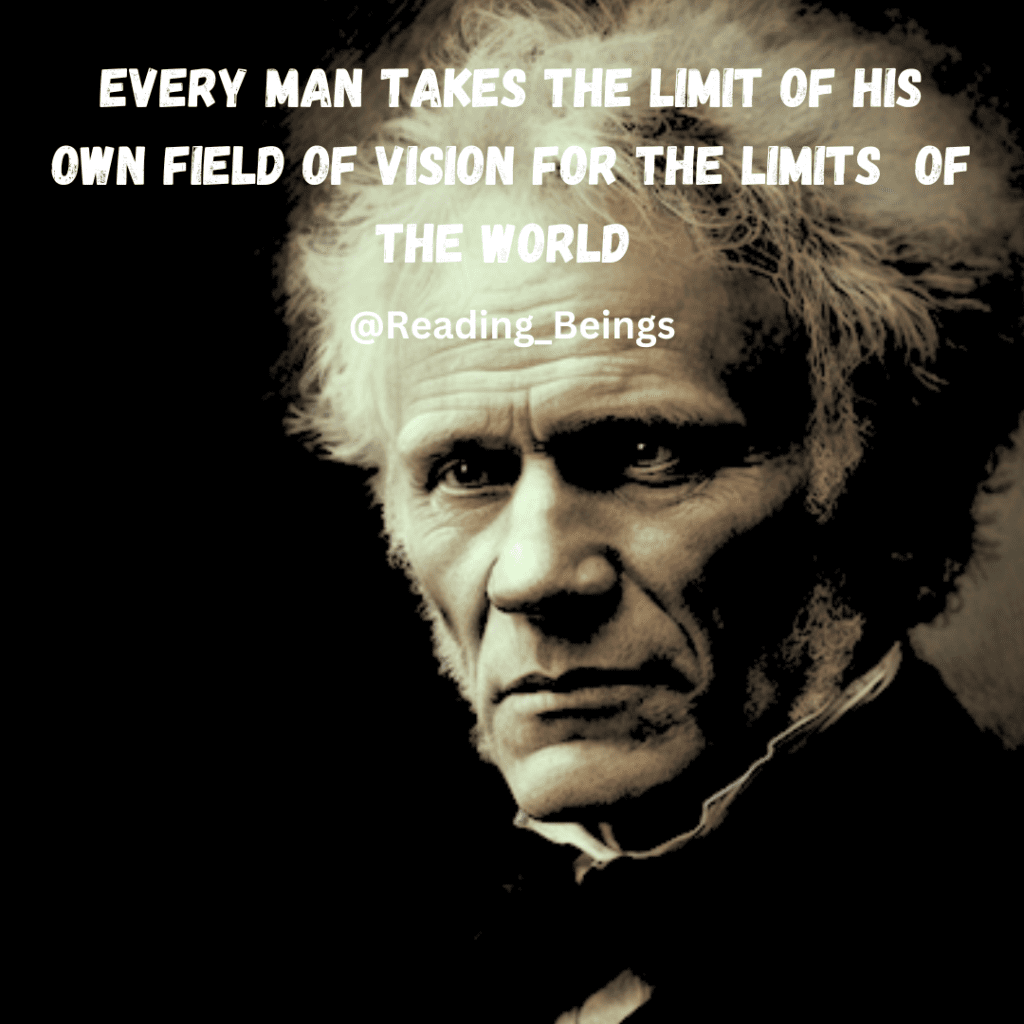The Darkest Philosopher in History – Arthur Schopenhauer. Being one of the first philosophers to ever really question the value of existence, to systematically combine eastern and western modes of thinking, and to introduce the arts as a serious philosophical focus, Arthur Schopenhauer is perhaps one of the darkest and most comprehensive philosophers in western history. Arthur Schopenhauer 22 February 1788 – 21 September 1860) was a Germanphilosopher. He is best known for his 1818 work.
The World as Will and Representation (expanded in 1844), which characterizes the phenomenal world as the product of a blind noumenal will. The Darkest Philosopher in History – Arthur Schopenhauer Through his revolutionary ideas and contemplations on human existence, Schopenhauer emerges as a prominent figure, beckoning us to explore the darkest depths of our minds. In this article, we delve into the life, philosophy, and lasting legacy of the enigmatic The Darkest Philosopher in History – Arthur Schopenhauer.

Given that his father was a very successful international businessman, he was born into a wealthy family.Young Schopenhauer would therefore be expected to carry on his father’s legacy. However, he had no interest in business from a young age and instead gravitated towards academia. And after his parents took him on a trip around Europe to help him get ready for a career as a merchant, the increased exposure he would have to the widespread suffering and poverty of the world would make him even more motivated to pursue a career in scholarship and conduct an in-depth intellectual analysis of how and why the world functioned—or, perhaps more accurately, how and why it appeared to function so negatively.
The Darkest Philosopher in History – Arthur Schopenhauer finally deviated from his family’s predetermined course of international business and enrolled at the University of Göttingen in 1809, where he became more immersed in and interested in philosophy during his third semester. The following year, he would change schools to the University of Berlin, where he would enrol in a superior philosophy programme run by well-known philosophers of the day. But Schopenhauer eventually came to dislike academic philosophy because it was overly esoteric, disconnected from practical issues, and frequently tied to theological goals.
He eventually abandoned the academic and intellectual scene and spent the ensuing ten years writing and philosophising on his own.By the time he was thirty, Schopenhauer had already produced the two volumes that would define his whole career, contain his entire, cohesive philosophical framework from which he would never stray, and ultimately shape the entire development of western thought. His dissertation On the Fourfold Root of the Principle of Sufficient Reason, which was published in 1813, laid the foundation for his philosophy.
His subsequent masterwork, The World as Will and Representation, which was published in 1819, laid out his entire unified philosophical system, including his metaphysics, epistemology, ethics, aesthetics, value judgements, and so forth. The Darkest Philosopher in History – Arthur Schopenhauer Despite these outstanding accomplishments continuing to play a significant role in Despite these impressive works going on to hold major stake in western philosophy, influencing some of the greatest thinkers and schools of thought thereafter, during this time, they would go mostly unnoticed.
Pessimism and the Denial of the Will
Schopenhauer’s philosophy is often described as profoundly pessimistic. He believed that suffering was an inherent part of existence and that life was ultimately futile. He viewed the pursuit of pleasure, power, and material possessions as empty and misguided. Instead, he advocated for the renunciation of desires and the denial of the will as a means to achieve liberation from suffering.
What is Will To Live ?
It is only a representation made by our mind using our senses and cognitive processes.As a result, we are unable to access an object’s fundamental essence outside of our phenomenological, mental perception of it. Schopenhauer, departing from Kant, would later contend that there isn’t just a lack of a plurality of objects beyond our experience, but also a lack of our ability to know or access the many objects of the world as they truly are. The Darkest Philosopher in History – Arthur Schopenhauer argued that there is a single, cohesive oneness of reality outside human experience—a kind of essence or force that propels existence and is outside of time, outside of space, and outside of all objectivation.
Schopenhauer continued to explore and define this force by drawing on and probing into the experience of being in the body, arguing that this is the only thing in the world that we have access to that is both a firsthand, subjective experience from within it and not just a mental representation of an object. Schopenhauer would therefore argue that what is found from inside, at the very heart of our existence, is an unconscious, restless force that strives for survival, food, and reproduction.
He would refer to this as the “will to live” force. In essence, this would lead him to the conclusion that reality has two sides, with the plurality of objects as they are represented to a conscious apparatus constituting the first side and the other side being the singular, unified force of the Will—hence the name of his master work, The World as Will and Representation. It is worth noting that the term Will can perhaps be misleading in that it might seem to imply an intention or human-like conscious motivation, but the Will, for Schopenhauer, is a blind, unconscious striving with no goal or purpose other than to keep itself going for the sake of keeping itself going.
Schopenhauer’s Philosophy of Religion
The Darkest Philosopher in History – Arthur Schopenhauer Philosophy of Religion was a key component to his overall belief system. It is a major piece in the puzzle of understanding Schopenhauer’s overall philosophy since it deals with the most fundamental questions on the nature of life and existence. He says that “The world is my representation” and claims that there is no way one can prove God, as God cannot be perceived by any one person as he/she perceives things through his senses as an individual.
Schopenhauer said that “there is no way I can see God” and goes on to claim that what one believes or perceives as being God is only a creation of his/her own mind. This way of thinking goes against what most religions teach, but Schopenhauer believes it to be true because he believes one cannot experience any type of external reality — including God — through his/her senses since they are limited to what one perceives with his eyes, ears, etc.
The Darkest Philosopher in History – Arthur Schopenhauer Influence and Legacy
Although Schopenhauer’s ideas were initially met with skepticism, they gradually gained traction and resonated deeply with subsequent generations of thinkers. His works, particularly “The World as Will and Representation,” introduced groundbreaking concepts that paved the way for existentialist and nihilistic philosophies.
Schopenhauer’s influence extended far beyond his contemporaries. His pessimistic worldview found echoes in the writings of Friedrich Nietzsche, Albert Einstein, Leo Tolstoy, Sigmund Freud, and countless others. His profound insights into the human condition continue to captivate philosophers, psychologists, and artists to this day.
Schopenhauer’s Relevance in the Modern World
Despite being a philosopher of the past, Schopenhauer’s teachings remain relevant and continue to provide valuable insights into our contemporary society. In our increasingly materialistic and consumer-driven world, Schopenhauer’s philosophy acts as a poignant reminder to seek fulfillment beyond fleeting desires.
The Darkest Philosopher in History – Arthur Schopenhauer ever-present allure of social media, material possessions, and societal expectations can lead to a perpetual state of dissatisfaction. By embracing Schopenhauer’s philosophy, individuals can gain a deeper understanding of the human condition and navigate life’s challenges with a sense of wisdom and resilience.
Frequently Asked Questions
Q: What were The Darkest Philosopher in History – Arthur Schopenhauer main philosophical ideas?
Schopenhauer’s main philosophical ideas revolved around the concept of the “will” as the fundamental essence of reality. He believed that the will was the cause of suffering and that the denial of desires and the renunciation of the will could lead to liberation from suffering.
Q: How did Arthur Schopenhauer view the pursuit of pleasure?
Schopenhauer viewed the pursuit of pleasure as empty and misguided. He believed that it was ultimately futile and led to a never-ending cycle of desire and suffering.
Q: Who were some of the notable figures influenced by Arthur Schopenhauer?
Several notable figures were influenced by Arthur Schopenhauer’s philosophy, including Friedrich Nietzsche, Richard Wagner, Leo Tolstoy, and Sigmund Freud.
Q: Was Arthur Schopenhauer’s philosophy widely recognized during his lifetime?
No, Arthur Schopenhauer’s philosophy was not widely recognized during his lifetime. It was only in the latter part of the 19th century that his work gained significant recognition.
Q: How does The Darkest Philosopher in History – Arthur Schopenhauer philosophy resonate with contemporary thinkers and artists?
Q: How does Arthur Schopenhauer’s philosophy resonate with contemporary thinkers and artists?
Q: What is the significance of Schopenhauer’s work “The World as Will and Representation”?
“The World as Will and Representation” is one of Schopenhauer’s most influential works. In it, he presents his metaphysical framework, exploring the concept of the will as the fundamental essence of reality and its connection to human suffering.
Arthur Schopenhauer, the darkest philosopher in history, left an indelible mark on the world of philosophy with his pessimistic worldview and profound insights into the human condition. The Darkest Philosopher in History – Arthur Schopenhauer exploration of the inherent suffering of existence, the denial of desires, and the pursuit of liberation from the will continues to captivate and challenge contemporary thinkers. As we unveil the depths of Schopenhauer’s philosophy, we confront the complexities of life and gain a deeper understanding of ourselves

